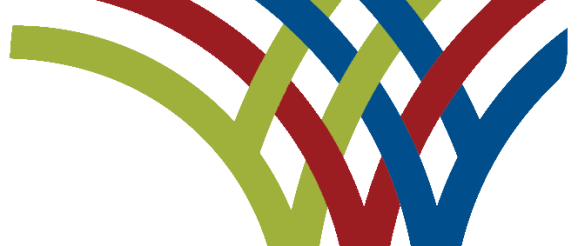Ethiopia: Innovation – Digitruck Ethiopia Launched, Aims to Enable Rural, Remote Students Benefit From Digital Technology

Addis Abeba — The DigiTruck Ethiopia project, which enables the provision of digital skills training to Ethiopian students, is launched in collaboration with the Ministry of Education, Huawei, and ICOG Anyone Can Code.
Among Huawei’s flagship projects, DigiTruck, has officially launched in Ethiopia in collaboration with the Ethiopian Ministry of Education and iCOG Anyone Can Code (iCOG ACC), with the goal of enabling rural and remote students to benefit from digital technology.
DigiTruck Ethiopia will conduct a country-wide technical tour on its refurbished 40ft container as a training hub equipped with high-end learning electronic gadgets for student learning, including laptop computers, robotic devices, and microelectronics. The tour will be conducted in multiple Ethiopian cities to raise awareness about the benefits of STEAM (Science, Technology, Engineering, Arts, and Mathematics) education.
The DigiTruck Ethiopia project aims to bridge the digital divide by establishing a framework for kids and young adults to be introduced to computers, programming, the internet of things (IoT), and other emerging technologies at an early age, given the large number of students attending schools across Ethiopia and the need to equip them with the skills required to join a society where technology-related competencies are becoming increasingly important.
Huawei Ethiopia has collaborated with the Ethiopian Ministry of Education and iCOG ACC, East Africa’s first private AI and robotics research and development company, to implement the pilot project and roll out the training program across the country.
During the launching ceremony, Prof. Berhanu Nega, Minister of the Ministry of Education, remarked, “Huawei’s DigiTruck Ethiopia project, coinciding with iCOG Anyone Can Code, is one of the initiatives aiming at improving the knowledge of our children and youths on the most basic and, of course, latest technology. After one year of preparation, the Ministry of Education, Huawei, and iCOG ACC successfully implemented the DigiTruck Ethiopia Project. It is hoped that through the DigiTruck Ethiopia project, Ethiopian students can enjoy the benefits of digital technology to the greatest extent possible and experience the charm of digital technology in an immersive way. The minister also praised Huawei and iCOG ACC for the collaboration’s initiation.
Following the proper implementation of the project, students’ attitudes toward learning different school subjects are expected to improve, along with their critical thinking ability, which accounts for higher performances. The project will greatly enhance students’ motivation, concentration, cognitive processing, reading comprehension, critical thinking, and creativity. The designed program will impact students beyond their knowledge of traditional school subjects, developing skills such as technology literacy, information management, communications, teamwork, entrepreneurship, global awareness, civic engagement, and problem-solving, as well as emerging technology abilities such as robotics and blockchain.
During the launching ceremony, Huawei Northern Africa region vice president Leo Liu mentioned that Huawei Ethiopia is delighted to bring one of its flagship projects to Ethiopia. “Our company has always been committed to building a solid IT talent ecosystem in Ethiopia. We are pleased to bring digital trucks to Ethiopia as part of Huawei Tech4all- leave no one behind.” He also expressed Huawei’s desire to see young children develop their talents, and has an access to digital technology via the Digi truck.
On the occasion, the CEO of iCOG ACC, Betelhem Dessie, said, “By implementing this project, we are trying to give the same opportunity I had as a kid. Introduction to the basic skillsets of the 21st century, Tech education is critical for today’s youth because it provides them with the opportunity and freedom to create. By inspiring the next generation of coders, DigiTurk is building a network of innovators that will shape the future of the country’s tech ecosystem. This project is a big component in our growing effort to educate kids and youth around Ethiopia on digital literacy, coding, and robotics.”
By creating awareness through this coding tour, DigiTruck Ethiopia plans to increase female students’ interest in STEAM subjects by engaging them in hands-on STEAM activities that help them build confidence and discover their interests while narrowing the gender inequality in the field. The DigiTruck Ethiopia project contributes to the Digital Ethiopia 2025 strategy for establishing a sustainable digital economy in Ethiopia by supporting the education-tech sector, primary and secondary education, and digital skills, which are expected to play pivotal roles in job creation, technological learning, innovation, and societal enhancement.
Sign up for free AllAfrica Newsletters
Get the latest in African news delivered straight to your inbox
By submitting above, you agree to our privacy policy.
Success!
Almost finished…
We need to confirm your email address.
To complete the process, please follow the instructions in the email we just sent you.
Error!
There was a problem processing your submission. Please try again later.
The project will continue the coding tour for the next seven years, reaching multiple zonal towns throughout the country with the assistance of universities, regional education bureaus, partner organizations, and other concerned educational institutions.
The DigiTruck Ethiopia project contributes to the Digital Ethiopia 2025 strategy for establishing a sustainable digital economy in Ethiopia by supporting the education-tech sector, primary and secondary education, and digital skills, which are expected to play pivotal roles in job creation, technological learning, innovation, and societal enhancement.
The launching ceremony was attended by different high-ranking government officials, including Fitsum Adela of the Ethiopian Plan Ministry.
Read the original article on Addis Standard.
